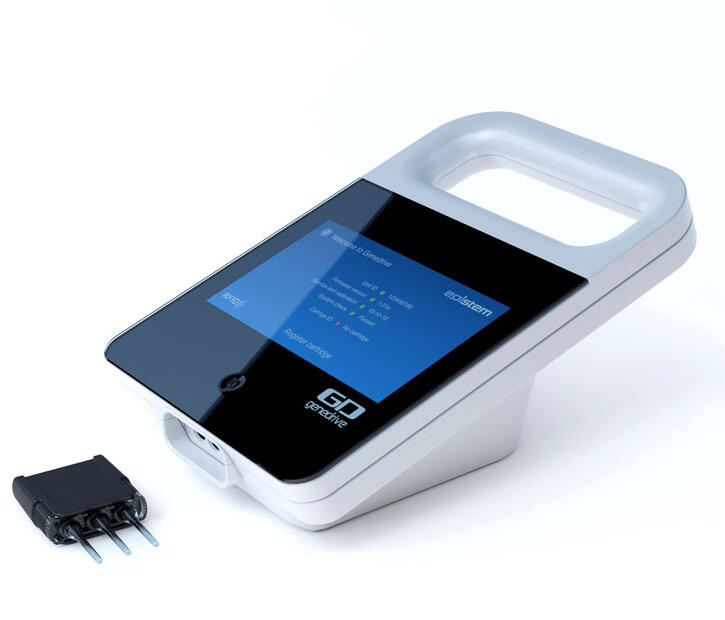
Today’s seminar was presented by Nick Claxton, Business Director Diagnostics of Epistem. The company Epistem is a biotechnology company commercialising adult stem cells in the areas of oncologyand gastrointestinal diseases as well as cosmeceutical applications. Epistem also develops innovative therapeutics and diagnostic biomarkers and provides contract research services to drug development companies. One of Epistem’s products is Genedrive, a system providing rapid analysis of molecular biomarkers in a simple, integrated unit.
Genedrive works by taking a sample from a patient which is injected into a small, clear plastic cartridge. The cartridge is then fed into the machine which can deliver test results within 30 minutes.
Diagnostic testing accounts for between 60-70% of all treatment decisions and with the advent of molecular diagnostics there is a growing trend toward diagnostics for the early detection of disease. In overseas community-based settings there is a demand for small, low-cost, rugged, easy to use, portable devices, such as the Genedrive, to provide accurate ‘Point of Care’ diagnostic testing for diseases such as malaria, TB or dengue.
Mr Claxton explained how the Genedrive had been used in India to identify early stage tuberculosis (TB). Working with one of India's largest diagnostic testing firms, Xcelris Laboratories, to evaluate the molecular diagnostic device as part of the country's TB control programme. Passing first in-field testing in 2011, the Genedrive is being submitted to India’s regulator.
With the Stop TB Partnership and WHO setting 2015 as a deadline for developing a simple ‘Point of Care’ test for TB, to help eliminate TB worldwide by 2030, the race is now on to demonstrate that Genedrive can meet the needs of low-income countries and rural communities, better than other competitors in this field.
Epistem is also developing Genedrive as a diagnostic platform for diseases such as malaria, dengue and HCV, HIV (viral panels). Following the seminar Mr Claxton met with leading scientists and researchers at LSTM, who were keen to question how effective the Genedrive could be in low-resource settings.